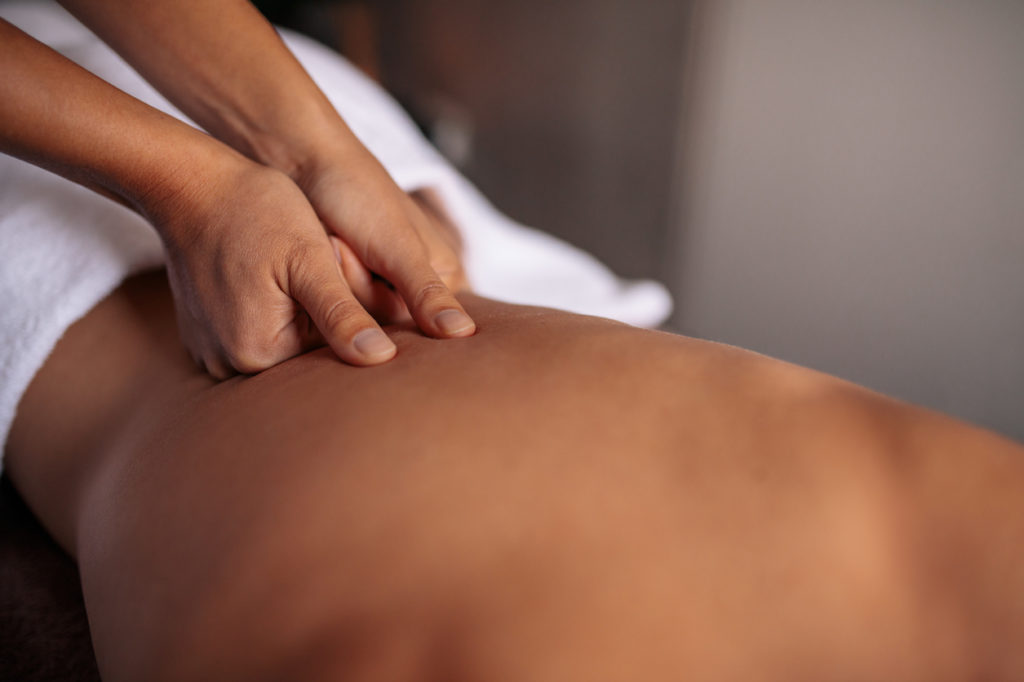Self-care is a big buzzword in the health and wellness community.
Search #selfcare on Instagram or Twitter, and the hits never stop. More than 9 million mentions pop up on the ‘gram, many of them showing overflowing glasses of wine or mugs of hot tea, freshly manicured fingernails, sheet masks and cozy couches piled with blankets in front of roaring fires.
Game-changing yoga style unhinged Colorado Springs woman — in the best way possible. In the meantime, here are the self-care beliefs and habits of a few local health and wellness practitioners.
Stacie Wyatt, a yoga teacher, and wellness lifestyle mentor, teaches 25 to 30 classes a week to adults with disabilities.
“My self-care routine is vital to me being able to show up and serve the people in front of me day after day.”
1. Live Well
I’m not knocking any of that. I’ve indulged in such things at one time or another. But sometimes self-care is not quite so fun and frothy. It also can closely resemble another pop culture buzzword: adulting. Perhaps they’re even one and the same, seen from a distance. Self-care for adults means going to the dentist and doctor on the regular, getting your car’s oil changed, balancing your checkbook, meeting with your financial adviser, making a will or putting yourself to bed, minus the wine and chocolate.
2. Go For a Walk
At least two walks a day, even if only for 20 minutes. She starts and ends each day with a walk.

Photo Credit: LightFieldStudios (iStock).
3. Be An Early Riser
She wakes up early every day to allow for planning time, to keep her “grounded and centered,” and for spirit time. “I might journal or pull cards, or sometimes just sit and be, like meditation or breathing.”
4. Essential Oils Daily
“Part of self-care and slowing down is learning to listen and intuitively know what my body is needing. I … have spent years educating myself on (the oils’) benefits and properties. I feel empowered that I have choices and can use them effectively to treat pain, sleep, energy and more.”
5. Treat Yourself
Two to three massages a month. Small meals three times a day and plenty of water.
Amanda Neufeld, founder of Yoga Studio Satya: “Self-care is a daily practice, and though the practices can seem small and subtle, they can bring about profound changes.”

Photo Credit: jacoblund (iStock).
6. Check-In
“Checking in and being honest with what I’m feeling, morning meditation and conscious breath (energizing, stabilizing, grounding, uplifting or focus, depending on my check-in) and gentle movement in all joints.” Through the day, she’ll also “check in” to make informed choices, “helping me to find balance and come back to center. Not only does self-care have a positive effect on you, the individual, but it trickles out into the world. When your cup is overflowing, you have plenty to share.”
Diana Adair, craniosacral therapist and Beyond Quantum Healer:
“Probably the most valuable form of self-care I practice these days is working with my subconscious mind through meditation and guided visualization. I can heal, release and realign with the deepest and highest part of myself. This may sound difficult, but it is actually pretty simple and has profound effects on my health, reaching my goals and daily quality of life.
“When we meditate, our brain drops out of the beta brainwave of conscious mind/central nervous system activity, into the light relaxation trance state of alpha brainwave, or into the deeper slower theta brainwave, where it needs to be to rest and repair the body. Through focusing inward and on the present moment, we tap into the subconscious mind and are able to heal ourselves.
7. Make Time For You
Make time to do what you love and what nourishes you. exercise, getting out in nature, dancing, being with loved ones.

Photo Credit: gradyreese (iStock.)
8. Receive Your Modality
I have to get acupuncture regularly and remember what that’s like in my body. I’m also hooked on other modalities like yoga and massage.
9. Keep Close Friendships
Have close friends and mentors who are also practitioners. We need to be able to share our challenges as practitioners with others who understand and can hold space for us.
10. Stay Inspired With Your Work
Find your edge of growth and follow it, do the continuing education, find a way to stay engaged and keep your work dynamic and fresh.

PhotoCredit: Blackzheep (iStock).
11. Boundary Work
Notice when the work feels depleting and really check in about what is going on. Are you having good boundaries with patients/clients and co-workers? Something as simple as figuring out how to enforce a cancellation policy in a kind and a consistent way can be really helpful. Maybe there is one patient or client who takes a ton of energy and exhausts you. You might need to refer them out. It’s the last resort that can be really liberating when done well.
12. Take Vacations
Make the time. It’s easy to think that our patients or our practice can’t survive without us. Dare to take the time off. Find a sub or close down and enjoy.
 Self Care Photo Credit: evgenyatamanenko (iStock).
Self Care Photo Credit: evgenyatamanenko (iStock). 



Comment on: 12 Ways to Take Better Care of Yourself